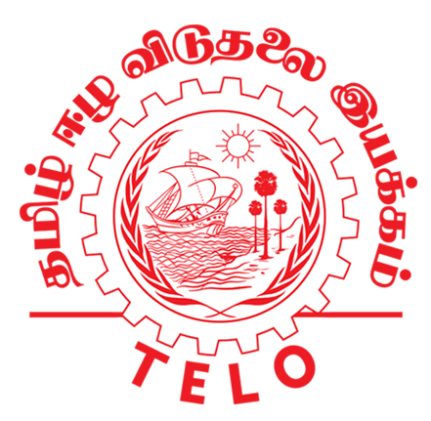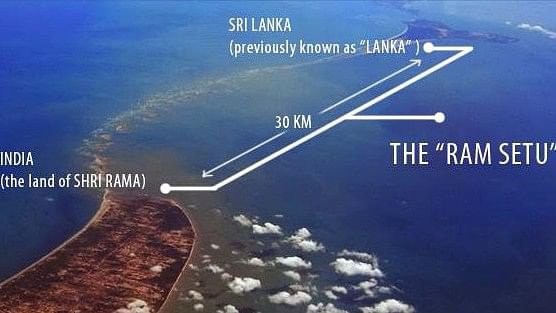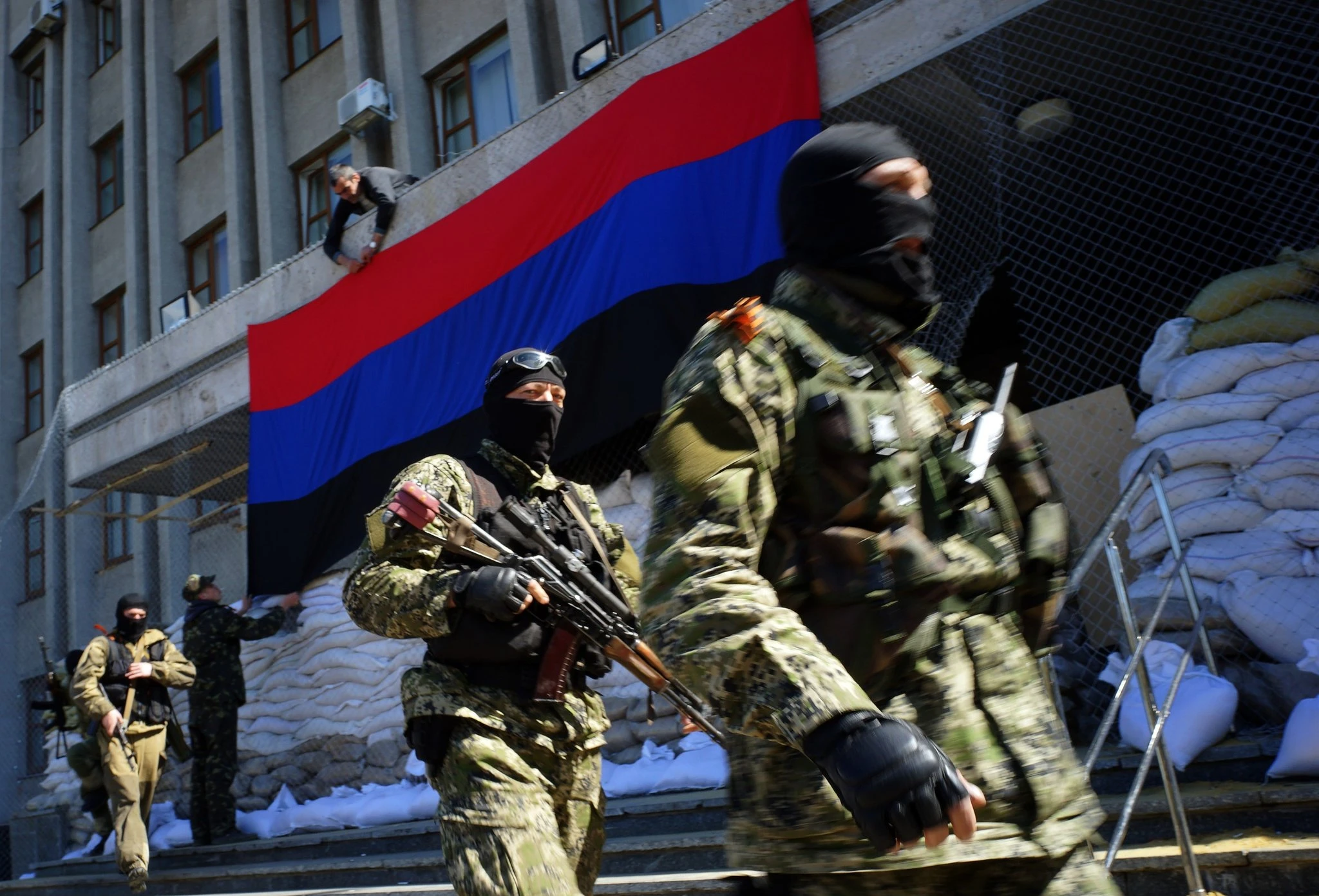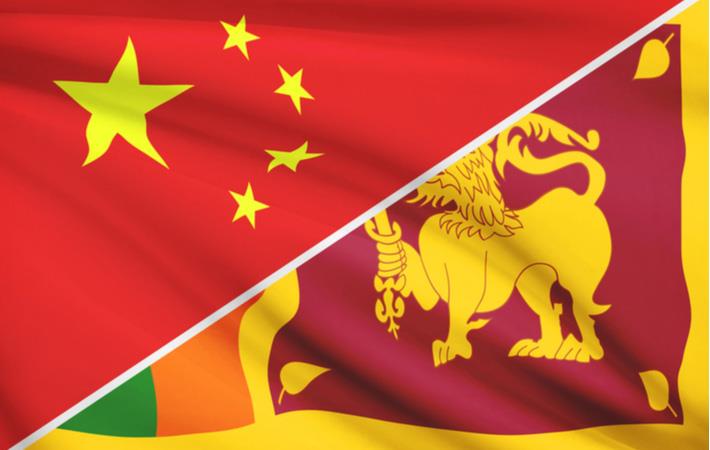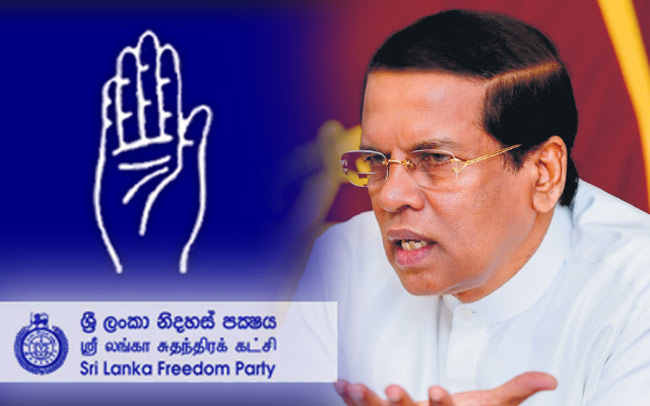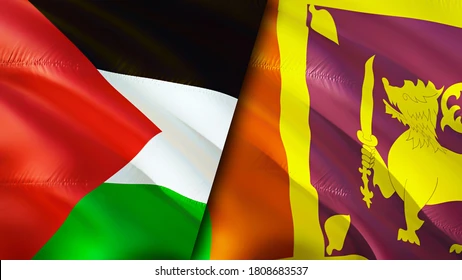Indian High Commissioner Santos Jha, in an interview with a select group of journalists, discusses the current status of bilateral ties and the future direction particularly with emphasis on connectivity.
Q It has been a little over four months since you assumed duties as High Commissioner here. What are your initial impressions?
Coming to Sri Lanka as India’s High Commissioner was in some way a homecoming for me – in a role with greater responsibility. I was here from 2007-10 as Counsellor. Sri Lanka has always been close to my heart with many memories and several friends who will stay with me for the rest of my life.
Since December, I’ve had an action-packed 4-4.5 months. I’ve travelled the length and breadth of the country, met people across spheres – political, business, media, academia and so on – and everywhere I have experienced a sense of filial warmth.
In terms of my impressions, I see optimism emerging – and commensurately a unique opportunity for the India-Sri Lanka partnership, particularly economic partnership.
Wherever I go, I see potential for India and Sri Lanka to collaborate and prosper together. India’s growing national capacities, coupled with the current phase of stabilisation and economic recovery, reconstruction and growth in Sri Lanka, present to us a unique opportunity to forge a closer and deeper bilateral economic partnership that both sides are now keen to realise.
Q Interestingly that you’d served here before as Counsellor in the late 2000s. Do you see a perceptible shift in the India-Sri Lanka relationship trajectory?
Well, definitely; our relations have never been better than they are today. But, some things never change, and some do. The warmth and welcome I receive are as usual very special. It reflects strong cultural and people-to-people bonds that make our relations special and unique. The India-Sri Lanka relationship was and is driven by the needs and priorities of the people of Sri Lanka. And these will never change. But overall the range, scale and ambition for the partnership have undergone a qualitative shift.
In my previous tenure, the India-Sri Lanka development cooperation had just taken off and today we have completed over 60 grant projects spread across 25 districts in all spheres. This is just one aspect that illustrates the overall upward trend in the richness of every dimension of this relationship.
The relationship is also evolving with people’s changing needs and priorities. The Vision Document adopted by our leaders, Prime Minister Narendra Modi and President Ranil Wickremesinghe during the latter’s visit to India in July 2023 lays down a long-term roadmap for the partnership. A roadmap to prosper together – with connectivity as the key enabler. The one factor that gives me immense confidence that the upward trajectory will get steeper is the perceptible political will on both sides to translate the roadmap into action with a sense of urgency.
Q India’s timely assistance of over USD 4 bn and support for the debt restructuring process was indeed a watershed in the relationship. Going forward, in what ways can India help Sri Lanka in restructuring its debt component with private creditors in addition to its active role in the Paris Club of Nations in restructuring bilateral debts?
Since the beginning of Sri Lanka’s debt restructuring discussions, India has been at the forefront in supporting the Government of Sri Lanka- be it by advocating for Sri Lanka at the IMF meetings in Washington; and being the first Creditor to give financing assurances to IMF or by co-chairing the Official Creditors Committee (OCC) along with Japan and France. India also extended assistance to the tune of USD 4 billion and was the first and largest contributor in terms of unconditional assistance extended through the supply of food, fuel and medicines, when Sri Lanka needed it the most.
At present, the Government of Sri Lanka (GOSL) is holding discussions with the private creditors on the terms and conditions for restructuring their debt. We hope that these terms will be comparable to the ones agreed by GOSL with the OCC and other official bilateral creditors. We would continue to engage with GOSL on these matters and will be ready to extend our helping hand in any way we can, based of course, on a request from the Sri Lankan side.
Q Connectivity was identified as the key enabler for long term economic partnership between India and Sri Lanka by the leaders of our countries during President Wickremesinghe’s visit to India in July 2023. How do you see that vision translating into action? What is the progress like in your assessment?
India and Sri Lanka have had unparalleled advantages of civilizational ties, geographical proximity, cultural connection and age-old goodwill. Our proximity geographically has ensured many advantages naturally. Today, India’s growth presents an opportunity for Sri Lanka. You have a rapidly growing engine for global growth next door, and we aspire for Sri Lanka, as the preferred partner and a close neighbour, to take advantage of this.
To harness synergies and complementaries, we are working towards enhancing connectivity in all its dimensions- maritime, air, energy and power, trade economic and financial, people to people as identified in the Vision Document. The progress on each of these fronts is impressive.
We resumed ferry services between Nagapattinam and Kankesanthurai last year with the Shipping Corporation of India. The ferry service will recommence after May 17th by a private operator selected by SCI in consultation with the Government of Sri Lanka. To make the service affordable and attractive for passengers, the Government of India has decided to bear the cost towards relevant charges and operating costs at Nagapattinam port to the tune of over LKR 25 million per month for 1 year. We are also working on a ferry service between Rameshwaram and Talaimannar. An Indian airline is the only one that has daily flights from Chennai to Jaffna. More and more commercial operators are now flying routes between India and Sri Lanka. On the energy and power front, we are on track for the grid connectivity and the multi-product pipeline. We are also progressing with the joint work on the land connectivity corridor. We have recently committed a grant assistance of USD 61.5 million for the development of the Kankesanthurai Harbour. We remain committed to developing Sri Lanka’s port and airport facilities.
The negotiations for upgrading our Free Trade Agreement to an Economic and Technology Cooperation Agreement or ETCA and a separate Bilateral Investment Treaty are also underway. The main objective remains advancing Sri Lanka’s access to vast Indian markets not just in merchandise goods but also in services and to promote further Indian investments.
Digital connectivity is another important aspect. UPI services were launched earlier this year. We have also begun trade settlements in Indian national rupees. Our efforts to implement the Sri Lanka-Unique Digital Identity Number project with an Indian grant of INR 300 crores are ongoing. This will be a stepping stone to bringing the developmental dividends of digital public infrastructure that we have seen in India, to Sri Lanka.
People-to-people connectivity is of course a continuous work in progress. Our cultural affinities make the potential of this dimension indeed limitless- be it capacity building, tourism, pilgrimage, educational opportunities- we are enhancing linkages in all these spheres.
Q What is the current status of the land connectivity project? What benefits do you think it would bring for both countries?
I would say the land connectivity corridor is the most ambitious and also the most impactful initiative in terms of potential. We are now taking the first steps to translate this game-changing initiative into real action on the ground. You must have seen that during the last visit of the President’s Chief of Staff and National Security Advisor of Sri Lanka to India in March 2024, both sides mutually agreed to engage in a quarterly review process on each of our connectivity projects, demonstrating a commitment to ensuring effective progress.
Once built, this connectivity corridor will transform our relations, epitomize our unbreakable partnership, and possibly uplift vast populations that it will connect, into a new era of growth and prosperity. A small business, say for instance a local women’s group manufacturing palmyra baskets- can load the produce in a small lorry, drive down for 30-40 kms and will have access to a market of 1.4 bn people. You will be selling faster than the rate at which you can currently produce! There will be enormous benefits to the tourism sector in terms of its catchment extending beyond Colombo to other parts of Sri Lanka, including in the North and the East. It will also stimulate investments in infrastructure such as in rails, roads, hotels, entertainment and recreational parks and other sectors. Our shared vision for developing Trincomalee as a regional hub for energy, industry and economy will also receive a boost. The potential impact of this project is only limited by our own imagination. It will be transformational for the India-Sri Lanka partnership.
Q We also see increasing commercial interest from Indian companies in Sri Lanka. Recently we saw the ITC opening, the Mattala Airport management being won by an Indo-Russian JV, etc. Has the Indian private sector confidence in Sri Lanka been restored?
Well, why – when had the confidence ever fallen? Let me put it this way – it is during the last four years, which has been a period of difficulty and turmoil not just in Sri Lanka but all over the world, that India has emerged as the largest foreign investor in Sri Lanka. During these years, Indian government-assisted development projects have continued. To name a few: the upgrading of the Railway Line from Maho to Omanthai, the supply of buses for public transport, the supply of SUVs to the Ministry of Public Security. All these are in addition to the USD 4 bn emergency assistance for food, fuel, medicine and fertilisers.
The deep and abiding commitment of the Government of India to Sri Lanka and its economy has, to a certain extent, a positive spillover effect on India Inc.’s confidence in Sri Lanka as well. The fact that you see ITC’s first foreign venture in the hospitality landscape worth USD 500 mn in the Colombo Skyline today is a vote of confidence in the potential of the Sri Lankan economy. The ongoing involvement of the Indian corporate sector in port development, dairy, energy and other sectors are further confirmation of our commitment. It is important to remember that investments attract more investments. And that’s why continuing to work towards being investor-friendly is key to Sri Lanka’s economic recovery.
Q Is China a factor in India’s increasing outreach to Sri Lanka? There are rumours that Chinese research vessels were also banned by Sri Lanka at the behest of India and some other countries. Is that the case?
India and Sri Lanka are civilisational twins – we have ties that are fraternal, and thus unique. I would say, India’s relationship with Sri Lanka stands on its own and doesn’t depend on third countries. Our relations are not driven by narrow considerations, nor do they have a limited transactional nature. They have a deeper, abiding and enduring logic that stems from us being proximate neighbours. We cooperate because it is almost instinctive for us to cooperate – it is the most natural thing to do – and frankly the only option.
India’s increasing outreach to Sri Lanka is a function of India’s increasing capacities at home. Let me give you a few examples. India has in the last 10 years seen a 388% increase in its renewable energy (RE) capacity. We are today the fourth largest market by deployed capacity for solar and wind power. We have launched the world’s second-largest green hydrogen mission. And thus our companies today have the capacity to help Sri Lanka exploit its huge yet untapped RE potential.
Today, the success of India’s Digital Public Infrastructure has enabled a social welfare system that is unprecedented in its scale and efficiency. It has allowed the government to make 450 million direct cash transfers or transfer food rations to 850 million to the poor and underprivileged, directly in full transparency. This has saved over USD 33 billion in leakages. We can bring in a similar digital stack to Sri Lanka once the foundational digital identity is set up through the SL-UDI project.
I can go on and on- but these examples are just to drive the point that our areas of cooperation are chosen to lift our neighbours with the rising tide of India’s economic growth, social empowerment and inclusive development.
It is also worthwhile to remember that our security, like our economic growth and development, is interlinked and intertwined, And therefore, it is essential that we work together keeping in mind each other’s security and sensitivities. We are confident of Sri Lanka’s wisdom to make the choices that are right for its people to fulfill their aspirations for a better tomorrow, and preserve and promote the value system and millennia-old unparalleled bilateral relations between the people of India and Sri Lanka.
Q How would you describe the defence and security dimension of the bilateral relationship?
Our bilateral relationship is expanding across spheres, including in the area of defence and security. Supply of equipment, training of armed and police forces and augmentation of security and military capacities remain an important area of our cooperation. We are also exploring opportunities for capacity building in Sri Lanka in the defence-industrial sector. India reserves the largest number of slots in the training of foreign defence personnel for Sri Lanka. This year we have committed project and equipment assistance in excess of one billion Sri Lanka rupees. We have bilateral exercises such as the SLINEX between our Navies and MITRA SHAKTI between our armies. India and Sri Lanka also conduct trilateral coast guard exercises, DOSTI, along with Maldives. We are also planning Air Force exercises, which will be held soon. Port calls and PASSEX are ongoing activities.
Security in itself has expanded to encompass energy, health, food and even economic security. Our role as the first responder in Sri Lanka’s times of need was visible during floods in 2017, during COVID-19 pandemic in 2021 and when it faced food, fuel and medical contingencies in 2022. This demonstrates that the security ties between our two countries are multi-dimensional, as they should be between neighbours.
Q India and Sri Lanka are working with increasing closeness in regional initiatives as well, be it IORA, BIMSTEC and others. Sri Lanka also participated at the highest levels in the two editions of the Voice of Global South Summits hosted by India. Now Sri Lanka is looking to enter BRICS. Will India help Sri Lanka join BRICS?
Our wide-ranging bilateral partnership is further buttressed by coordination in regional mechanisms like the IORA, BIMSTEC, Colombo Security Conclave, etc with the perspective of addressing the regional concerns mutually. This year, Sri Lanka is the IORA Chair and India the Vice-Chair.
The Voice of Global South Summit provided a common platform to deliberate on the concerns, interests and priorities that affect the developing countries. During its G20 Presidency, India for the first time ensured that G20 took into account the inputs generated from partner countries in the Voice of Global South Summit deliberations.
We strongly feel that as developing countries we must unite in voice and purpose in addressing our concerns and priorities at the regional level. India sees Sri Lanka as a valuable partner in this regard and will continue to work with Sri Lanka towards this common purpose.
Q The Tamil parties demand full implementation of the 13th Amendment. What is India’s approach?
We are strongly committed to the unity, stability and territorial integrity of Sri Lanka. Our support for the reconciliation process in Sri Lanka is longstanding, as also for an inclusive political outlook that encourages ethnic harmony. This has been stated at high political levels over the years and our position in this regard remains consistent and persistent. We believe that it is in Sri Lanka’s interest that the expectations of the Tamil people for equality, justice, peace and dignity within a united Sri Lanka are fulfilled. That applies to commitments made by the GOSL on political reconciliation and implementation of the 13th Amendment to the Sri Lankan Constitution. We will maintain this position even as we continue to work with the government of Sri Lanka to implement development initiatives that benefit the people of northern and eastern Sri Lanka, as part of our overall cooperation in various spheres in Sri Lanka.
Q And also High Commissioner, can we conclude with your overall vision for the India-Sri Lanka friendship?
Adding to what I have already said, the potential of India-Sri Lanka friendship is limitless. In every conversation I have or every place I visit, there are ideas on what more we can do. It tells me that the people on both sides have greater aspirations for the relationship. This drives us to strive for stronger bonds and greater linkages; this is what makes working on this project of promoting our relations exciting.
The momentum that the relationship has acquired in the past year following the adoption of the vision document by our leaders in July 2023 gives us the confidence that even better days are ahead. This new confidence is further buttressed by our respective vision to transform our nations into a developed one by mid-century; our new-found determination to finally deliver and translate our potential into performance; our faith in democratic polity and good governance; and most importantly, the aspirations of our large youthful populations, which gives us the much-needed drive and energy, to forge ahead. Indeed, we seem poised to be on the right side of history, expecting to finally achieve our ambition and aspirations of scaling greater heights together.




